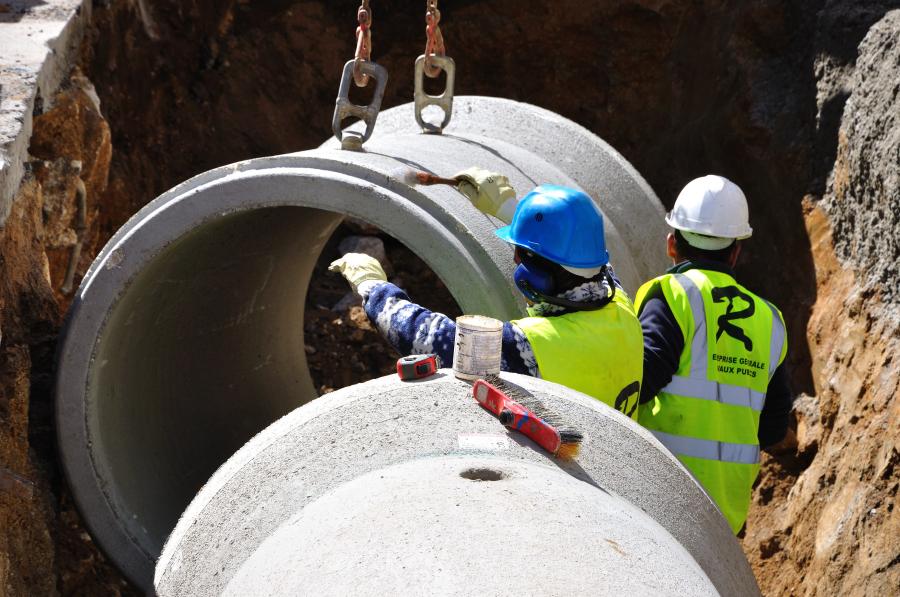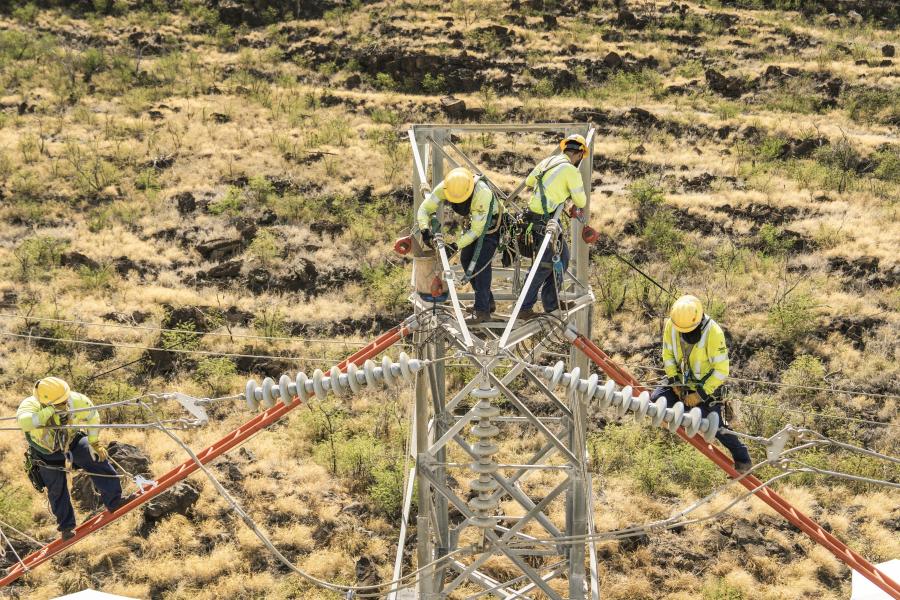The new administration will likely direct OSHA to adopt an emergency temporary standard (ETS) for workplaces to protect employees from COVID-19.
The construction industry could be in for a bumpy ride as the U.S. economy recovers from the coronavirus and the recession tied to it.
Dodge Data & Analytics calls for a 4 percent regain in 2021, after a 14 percent loss this year. Will a new administration, new leaders and renewed regulation create more potholes?
"The COVID-19 pandemic and recession has had a profound impact on the U.S. economy, leading to a deep drop off in construction starts in the first half of 2020," said Richard Branch, Dodge chief economist.
"While the recovery is under way, the road to full recovery will be long and fraught with potential potholes."
Branch cited the uncertainty surrounding the wave of infections in the fall and winter, along with delayed fiscal stimulus as reason for "a slow and jagged recovery" next year.
Though business and consumer confidence will improve, "construction markets have been deeply scarred and will take considerable time to fully recover," added Branch.
With additional federal aid to state and local areas still up in the air, he forecasts public works construction to see little improvement early in the year. Many doubt the public works sector will post a strong gain because of the unfinished appropriations process, which began Oct. 1, 2020. Construction starts are expected to be flat over the next year.
Electric utilities and gas plants are expected to gain 35 percent, though. Branch said ground breakings for several LNG export facilities and wind farms will contribute.
New Faces, Old Issues
In addition to fighting for traction during the recovery, the construction industry faces a new administration, new government leaders and an old set of issues helped by a number of new factors.
Pete Buttigieg, former 2020 Democratic candidate for president and mayor of South Bend, Ind., was nominated by president-elect Joe Biden to serve as the 19th U.S. Secretary of Transportation.
The American Association of State Highway and Transportation Officials (AASHTO) reported that Buttigieg plans to implement Biden's "Build Back Better" agenda.
The platform includes rebuilding the nation's infrastructure with more sustainability, creating millions of union jobs and tackling the climate change via clean energy development.
Biden has a goal of earmarking generous funds for transportation infrastructure.
His plan would invest $1.3 trillion over 10 years in transportation infrastructure, starting with a $50 billion allotment for highway repairs. It also would bring zero-emissions public transportation options to American cities with populations of 100,000 or more.
Light rail, electric-powered transit buses and bike and pedestrian infrastructure are the focus of the plan, which would broaden use of clean fuels, including electricity, in transit vehicles, school buses and ferries.
High-speed intercity rail also would get more support. All of this means projects for construction contractors and jobs for crew members across the country.
Strengthening Regulation
Biden is expected to beef up OSHA when he takes office.
The National Law Review expects higher budgets and more personnel for workplace safety and labor agencies, including the EEOC, NLRB, IRS and DOJ.
"Look for early agency ‘guidance' and informal interpretations as well as formal actions," noted the Review.
The American Society of Safety Professionals (ASSP) is keeping an eye on OSHA and labor issues for next year. James Thornton, chair of the association's government affairs committee, noted that Biden's administration "will likely have a much different approach" to occupational safety and health.
As a result, Thornton added, "the agency will be expected to quickly transition to a new operating philosophy."
He noted four OSHA-related issues to watch:
Agency Leadership — OSHA has been without an assistant secretary for the entire Trump Administration. Thornton expects the incoming administration will quickly nominate a candidate before launching the confirmation process.
Regulatory Enforcement — "OSHA is perpetually challenged about the annual number of inspections performed," noted Thornton. "It seems to be the metric against which the agency is gauged."
While labor always demands more inspections, management wants fewer, and much less focus is placed on the actual depth of the inspections, he added.
Although the number of annual inspections has remained fairly steady at approximately 32,000, many have generated high levels of penalties.
"Consequently, there appears to be a relative level of acceptance about to the number of inspections," said Thornton.
As a result of a COVID-19 resurgence, the number and type of inspections performed next year will be affected.
"It is likely that the new administration will be urged to increase enforcement activities," Thornton noted.
Legal information firm JD Supra, Sausalito, Calif., expects Biden "will ramp up enforcement by increasing inspections and filling vacancies."
The firm also believes Biden will create an emergency temporary standard to ensure businesses protect workers from exposure to COVID-19.
Federal Safety Regulations — Thornton noted that OSHA remained active in rulemaking, and has established standards or guidance on beryllium, silica, recordkeeping, heat, whistleblowers, medical records and COVID-19.
"It is important to note that several executive orders issued in 2020 require all government agencies to identify standards that may inhibit economic recovery and rescind/modify/waive as necessary," wrote Thornton. "Several of these orders urge government agencies to use latitude when enforcing standards that have significant impact on economic recovery."
Another recent order requires government agencies like OSHA to post all guidance documents on a website. Anything not posted would be viewed as rescinded for enforcement purposes.
Biden's administration will likely reverse these orders, believes Thornton. He also expects reinvigorated standards on workplace violence, heat exposures, infectious diseases and permissible exposure limits (PELs), he wrote.
Potential Developments — Thornton came up with a laundry list of other trends that could emerge:
- The Trump administration may issue some "midnight rules," although time is running out.
- OSHA is celebrating its 50th anniversary. "Could a ‘new and improved' version of OSHA be in the making?" he posed.
- The new administration could push for renewed congressional attention to the Protecting America's Workers Act, which would require significant OSHA reform.
- Revising the many outdated PELs would be a significant development for occupational safety and health professionals and their organizations.
- Look for renewed support of federal advisory committees such as NACOSH and MACOSH.
- Addressing recordkeeping, as well as using drones for inspections, also could be at play.
- The 2014 Fair Pay and Safe Workplaces executive order that disqualifies contractors with poor safety records from obtaining federal contracts may be revisited.
COVID-19, Workers
Biden's administration is likely to direct that OSHA take actions starting with an emergency temporary standard (ETS) for workplaces to protect employees from COVID-19. Environmental law firm Beveridge & Diamond PC, Washington, D.C., noted that OSHA can adopt an ETS without notice-and-comment rulemaking.
The ETS takes effect upon publication, if OSHA determines employees are exposed to grave danger from exposure to substances or physical agents or new hazards.
"Under a Biden Administration, OSHA is likely to decide that mandatory requirements specific to COVID-19, in addition to its existing general standards, are necessary to protect employees and issue an ETS," noted the law firm. "This ETS may apply to most employers, or it could be limited to employers of ‘essential' or ‘frontline employees.'"
In crafting an emergency standard, the Biden administration may look to states such as Michigan, Oregon and Virginia, which have rules in place.
Business & Legal Resources (BLR), Brentwood, Tenn., noted that Virginia was the first state to adopt an ETS for COVID-19. Virginia's ETS, which applies to every employer in the state, contains provisions for exposure assessments and risk determinations. It also addresses notification requirements and employee access to exposure and medical records.
Employers must ensure employees observe physical distancing protocols.
Frequently touched surfaces must be cleaned and disinfected at the end of each shift. Common areas like break rooms and lunchrooms must be closed or their access tightly controlled, noted BLR.
Michigan's emergency COVID-19 rule, possibly one of the strictest, addresses remote work when feasible, and requires employers pay for employee face coverings. The Michigan Occupational Safety and Health Administration (MIOSHA) emergency rule includes requirements for preparedness and response plans.
Infection prevention measures, health surveillance, workplace controls, personal protective equipment (PPE), recordkeeping and training also are covered.
Michigan also requires employers to provide non-medical-grade face coverings for employees at no cost. The rule requires face coverings when employees cannot maintain a 6-ft. distance from others.
Other states do not require employers to pay for employees' face coverings, noted BLR.
A Michigan interim enforcement plan directs on-site inspections conducted by industrial hygienists in the agency's construction and general industry divisions. California has an airborne transmissible disease (ATD) standard, according to BLR, but the federal government does not.
The Obama administration OSHA was developing a standard for comprehensive infection control programs and measures to protect employees. The Trump administration removed the rulemaking from the Department of Labor's regulatory agenda.
BLR noted "the COVID-19 pandemic and a subsequent shortage of respirators have renewed interest in an infectious disease workplace standard."
Regulation By Shaming
BLR also noted that under Biden OSHA also could resume distributing press releases about violations cited and fines issued in agency enforcement actions. The policy under former OSHA administrator David Michaels led to other facilities significantly improving their compliance.
The Trump administration curtailed the practice, but under Biden OSHA likely would feature well-publicized enforcement, believes BLR. CEG
Lucy Perry
Lucy Perry has 30 years of experience covering the U.S. construction industry. She has served as Editor of paving and lifting magazines, and has created content for many national and international construction trade publications. A native of Baton Rouge, Louisiana, she has a Journalism degree from Louisiana State University, and is an avid fan of all LSU sports. She resides in Kansas City, Missouri, with her husband, who has turned her into a major fan of the NFL Kansas City Chiefs. When she's not chasing after Lucy, their dachshund, Lucy likes to create mixed-media art.
Read more from Lucy Perry here.
Today's top stories
















